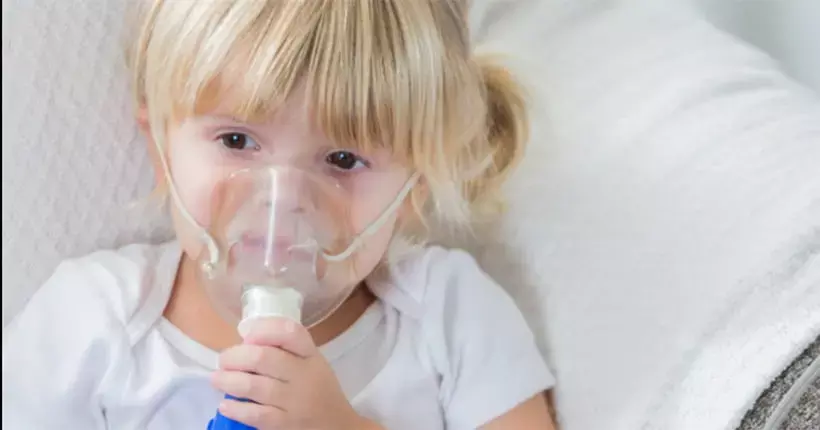- Home
- Medical news & Guidelines
- Anesthesiology
- Cardiology and CTVS
- Critical Care
- Dentistry
- Dermatology
- Diabetes and Endocrinology
- ENT
- Gastroenterology
- Medicine
- Nephrology
- Neurology
- Obstretics-Gynaecology
- Oncology
- Ophthalmology
- Orthopaedics
- Pediatrics-Neonatology
- Psychiatry
- Pulmonology
- Radiology
- Surgery
- Urology
- Laboratory Medicine
- Diet
- Nursing
- Paramedical
- Physiotherapy
- Health news
- Fact Check
- Bone Health Fact Check
- Brain Health Fact Check
- Cancer Related Fact Check
- Child Care Fact Check
- Dental and oral health fact check
- Diabetes and metabolic health fact check
- Diet and Nutrition Fact Check
- Eye and ENT Care Fact Check
- Fitness fact check
- Gut health fact check
- Heart health fact check
- Kidney health fact check
- Medical education fact check
- Men's health fact check
- Respiratory fact check
- Skin and hair care fact check
- Vaccine and Immunization fact check
- Women's health fact check
- AYUSH
- State News
- Andaman and Nicobar Islands
- Andhra Pradesh
- Arunachal Pradesh
- Assam
- Bihar
- Chandigarh
- Chattisgarh
- Dadra and Nagar Haveli
- Daman and Diu
- Delhi
- Goa
- Gujarat
- Haryana
- Himachal Pradesh
- Jammu & Kashmir
- Jharkhand
- Karnataka
- Kerala
- Ladakh
- Lakshadweep
- Madhya Pradesh
- Maharashtra
- Manipur
- Meghalaya
- Mizoram
- Nagaland
- Odisha
- Puducherry
- Punjab
- Rajasthan
- Sikkim
- Tamil Nadu
- Telangana
- Tripura
- Uttar Pradesh
- Uttrakhand
- West Bengal
- Medical Education
- Industry
Repeated GA Shows No Negative Neurobehavioral Effects in Children with Cystic Fibrosis, suggests Lancet study

Researchers have found that repeated exposure to general anesthesia does not negatively impact neurobehavioral outcomes in children with cystic fibrosis (CF). This conclusion comes from the CF-GAIN trial, a randomized phase IV study, which assessed various neurobehavioral metrics in these children. The study was published recently in The Lancet: Respiratory Medicine by Prof. Claire Wainwright and colleagues.
Children with CF often require repeated medical procedures, some of which involve general anesthesia. Concerns have been raised about potential neurotoxic effects of anesthesia, particularly in developing brains. Observational studies have suggested possible associations between early anesthesia exposure and adverse neurodevelopmental outcomes, but these studies were limited by confounding factors. This study aimed to provide clearer evidence by comparing neurobehavioral outcomes in children exposed to varying levels of anesthesia.
The CF-GAIN trial included children who participated in the Australasian Cystic Fibrosis Bronchoalveolar Lavage (ACFBAL) trial. Children aged 2 to 11 years with CNS malaria, excluding those with creatinine levels above 1.2 mg/dL, were included. Of the 256 participants, 128 were randomized to aggressive antipyretic therapy and 128 to usual care.
Aggressive Antipyretic Group: Received acetaminophen (30 mg/kg load, then 15 mg/kg) plus ibuprofen (10 mg/kg) every 6 hours for 72 hours, irrespective of their temperature.
Usual Care Group: Received 15 mg/kg of acetaminophen as needed every 6 hours for temperatures above 38.5°C.
The primary outcome was the mean composite score on the Conners Continuous Performance test, second edition, assessing child attention, processing speed, and response inhibition skills. Secondary outcomes included intellectual function, other neurobehavioral measures, and brain imaging results.
• A total of 256 children participated in the study, with 52 randomly assigned to BAL-directed therapy under general anesthesia and 45 to standard care.
• The mean composite score was 51 for the BAL-directed therapy group versus 53 for the standard care group (P=0.32).
• Secondary endpoints, including intellectual function and other neurobehavioral measures, were similar between the groups.
• Small differences were observed in grey matter and corpus callosum, but these differences were likely due to chance.
• The BAL-directed therapy group had a median of 10 exposures to general anesthesia, compared to four in the standard-care group.
• The median cumulative exposure time was 180 minutes for the BAL-directed group versus 48 minutes for the standard-care group.
This study found no significant differences in neurobehavioral outcomes between children who received repeated exposures to general anesthesia and those who did not. The observed minor differences in brain imaging were not deemed clinically meaningful. This aligns with prior observational studies suggesting that general anesthesia does not significantly impact long-term neurodevelopmental outcomes.
The CF-GAIN trial provides robust evidence that repeated exposure to general anesthesia does not adversely affect neurobehavioral outcomes in children with cystic fibrosis. This finding supports the continued use of necessary medical interventions involving anesthesia in this population without additional concern for neurodevelopmental harm.
Reference:
Wainwright, C. E., Vidmar, S., Anderson, V., Bourgeat, P., Byrnes, C., Carlin, J. B., Cheney, J., Cooper, P., Davidson, A., Gailer, N., Grayson-Collins, J., Quittner, A., Robertson, C., Salvado, O., Zannino, D., Armstrong, F. D., Armstrong, D., Byrnes, C., Carlin, J., … Quittner, A. (2024). Long-term outcomes of early exposure to repeated general anaesthesia in children with cystic fibrosis (CF-GAIN): a multicentre, open-label, randomised controlled phase 4 trial. The Lancet. Respiratory Medicine. https://doi.org/10.1016/s2213-2600(24)00170-x
Dr Riya Dave has completed dentistry from Gujarat University in 2022. She is a dentist and accomplished medical and scientific writer known for her commitment to bridging the gap between clinical expertise and accessible healthcare information. She has been actively involved in writing blogs related to health and wellness.
Dr Kamal Kant Kohli-MBBS, DTCD- a chest specialist with more than 30 years of practice and a flair for writing clinical articles, Dr Kamal Kant Kohli joined Medical Dialogues as a Chief Editor of Medical News. Besides writing articles, as an editor, he proofreads and verifies all the medical content published on Medical Dialogues including those coming from journals, studies,medical conferences,guidelines etc. Email: drkohli@medicaldialogues.in. Contact no. 011-43720751


